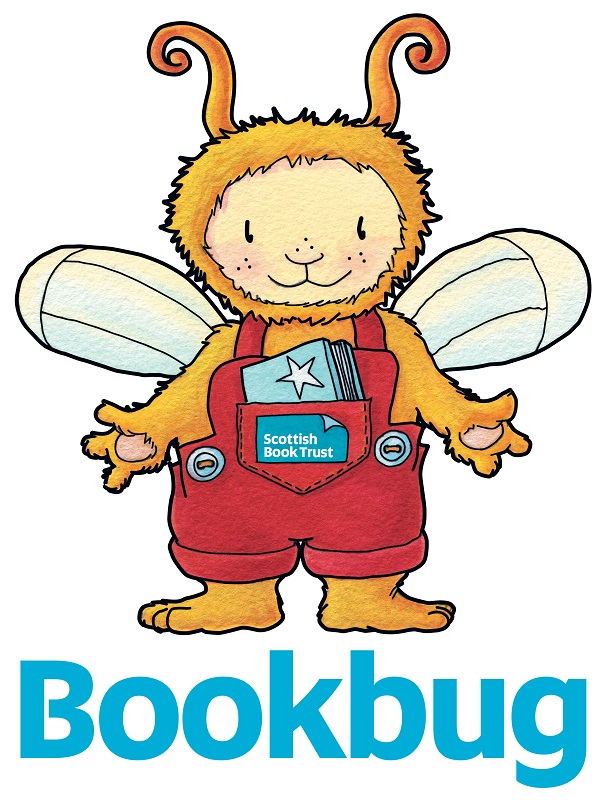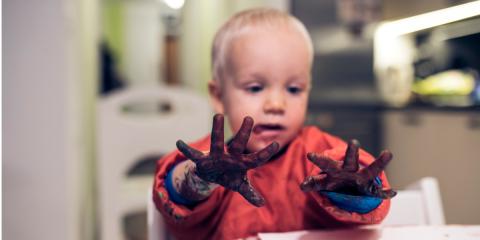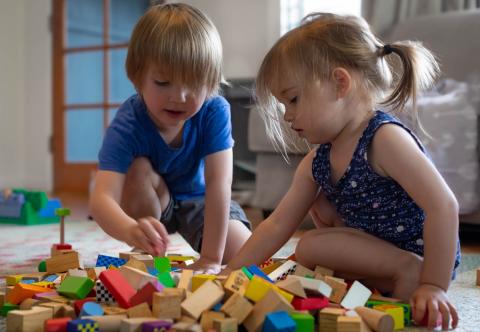Chasing after a toddler can be exhausting. Having to deal with the ups and downs of life while looking after a little person with endless energy isn’t easy. You might be concerned that you’re so busy running around after them that you might be missing things they need from you. Try not to worry.
By focusing on a few simple things you can make your wee one feel safe, loved, and connected to. This helps your relationship flourish and provides what they need for their minds to develop and for them to grow into confident and happy kids.
Helping your toddler feel safe and connected
In this short video, Dr Suzanne Zeedyk explains how you can help your baby or infant feel safe, connected and cared for so they grow up to be resilient. They don’t need expensive toys, they just need you!
How to make your toddler feel safe, connected, and cared for
Finding the time to engage with your toddler can feel difficult at the best of times. It might be doubly difficult if you're working, have other children in the house, or are just up to your eyes in every day jobs. But there are lots of ways you can fit in time with them throughout the day. Here are some ideas to try.
Tip #1: Running commentary
While you’re going about the day try to chat whenever possible to your child, even if it is just telling them what you are doing. You could be hanging up clothes, doing the dishes, or out doing the shopping, it doesn't matter. You might not have time to play, but you can still make time to be playful.
Tip #2 Gentle voices
Use a calm and playful tone of voice. It’s not important that they understand everything you say. They understand the emotion in your words and that is what matters most.
Tip #3: Listen to how they feel
It can be helpful to talk to them about how they felt during the difficult behaviour and how they feel now. This helps them understand that their feelings are important to you and that they can talk to you about tough times.
Tip #4: Reinforce good behaviour
Young children usually do more of what you notice, and less of what you don’t. Try to ignore annoying behaviours such as wind up and temper tantrums as long as they are safe, and praise them when they’re behaving well. This will help them learn that you are more likely to respond to positive behaviours
Tip #5: Give your attention
Show interest in their actions and what they do by looking at them, nodding, talking and/or joining in whatever they are doing or asking you to do. Try and give them 100% of your attention whenever you can.
Tip #6: Power of touch
Physical contact is important. Offering a hug can make them feel safe and loved. If you have been apart or busy for a while, hugs make it feel good to come back together.
Tip #7: Focus on the positive
Once any difficult behaviour or temper tantrum is over, find something positive to notice about what your child is doing. It could be something as simple as them playing nicely with their toys or drawing a picture.
Tip #8: Go to their level
When possible set yourself at the same height on the floor. Talking to your toddler face to face is a great way of connecting with them.
Tip #9: Put your phone away
We all have busy lives and need to stay in touch with friends and family, keep on top of emails and life admin or check in on social media. But research shows that being on our phones makes us less responsive to our children, which can make it harder for them to learn how to communicate and socialise with others as they grow up. So when you’re chatting or playing with your wee one, try to put away the phone for a bit and give them your full attention.
It’s also worth remembering that if your toddler sees you spend lots of time on your phone, they’ll want to do the same thing. So it’s a good idea to model the kind of behaviour you’d like to see from your child as they grow up – like putting your phone away at mealtimes and putting it down to listen when they’re talking to you.
Our page on babies and screens and screen use for 2-4 year olds explain more.
Serve and return – to and fro with your toddler
Taking the time to respond to your toddler is a crucial way of building your bond together and teaching them how to communicate. See what they’re interested in and talk to them about it, giving them time to respond. Then copy what they say and add to it, and so on.
For example, if they say “Ball!” you could reply “Yes! It’s a ball! What colour is the ball?"
This is called “serve and return'' and it’s a powerful way to build language and help them develop the ability to handle their emotions. This can be as simple as taking an interest in what they are doing, like the toys they are playing with and listening to what they have to say. This is important for their development and it’s time together that you can both treasure.
“We all love to feel listened to and understood! With serve and return, your baby is saying to you: I compare what you say to what I expected to hear, and this helps me learn how to communicate and how to manage feelings. But it goes deeper – I feel connected to you and safe, and this sets the patterns for how I cope in future when things go wrong (and it’ll make me easier to handle now!)”
This video from the Royal Foundation Centre for Early Childhood explains more about how back and forth interactions help support your child’s development.
Story time
Another great way to connect is reading stories together. Let your child choose the story and take them slowly through it. Don’t be shy about doing funny voices or actions together! Make it a part of a bedtime routine as it helps your child feel really connected before you part for the night.
Be prepared to have to read the same story over and over each day – your child won’t be bored with it, even if you are. The reason that young children love to repeat things is that it feels predictable and familiar to their brain, and the experience becomes part of how they experience their world.
Tantrums and strops
All toddlers get upset, cry and have tantrums. It’s just their way of telling you that they’re angry, afraid or frustrated. By keeping calm and soothing them, you’ll help it blow over quickly.
Our pages on toddler tantrums have more tips to help.
“There is no such thing as a perfect parent. That is such a relief for parents to hear! In fact, our children don’t even need perfect parents. Young children learn a lot from moments of difficulty, including when they are unhappy with you! The most important thing about those tough moments is that you ‘make up’ at the end of them. You let your little one know that you heard their discomfort. Scientists call this the ‘Rupture-Repair Cycle’. Ruptures are okay as long as there is always a repair afterward. Trust is built in those moments of repair.”
“A crying baby or a toddler with a tantrum is not a spoilt child. It is someone with feelings too strong to manage themselves. If we help them solve their problem, they will gradually become more able to solve it themselves.”
Look, Say, Sing, Play
Visit Look, Say, Sing, Play on the NSPCC website for more things you and your toddler can do together. It has lots of tips and activities that help you connect to them and support their development. All the interactions you share help you bond and help their mind grow.

Bookbug
You can find songs and rhymes to suit different moods or times of day in the Scottish Book Trust’s Bookbug Library, as well as ideas for how to use them with babies, toddlers and 3-5 year olds. Or you could download Bookbug's songs and rhymes app so you’ll always have songs on demand on your phone!

 Activities & Play
Activities & Play Behaviour
Behaviour Childcare
Childcare Development & Growing Up
Development & Growing Up Family, Friends & Relationships
Family, Friends & Relationships Feeding Your Baby
Feeding Your Baby Food & Eating
Food & Eating Health & Safety
Health & Safety Mental Health & Wellbeing
Mental Health & Wellbeing Money & Work
Money & Work Online Behaviour & Safety
Online Behaviour & Safety Pregnancy & First Days
Pregnancy & First Days School & Education
School & Education Sleep
Sleep









 Behaviour
Behaviour
 Sleep
Sleep